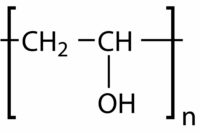
Casein
What is Casein?
Casein is a highly nutritious and versatile protein derived from milk. It is one of the primary proteins found in cow’s milk, constituting about 80% of the total protein content. Casein is renowned for its excellent amino acid profile and its ability to form stable structures in various applications. Due to its unique properties, casein finds a wide range of uses in the food, industrial, and pharmaceutical industries.
Applications of Casein
- Food Industry: Casein is a common ingredient in the food industry, especially in the production of dairy products like cheese and yogurt. It provides the characteristic creamy texture and acts as a source of high-quality protein.
- Cheese Making: Casein is essential in cheese making, where it coagulates to form curds. The curds are then pressed and aged to produce various types of cheese, each with its own distinct flavor and texture.
- Bakery Products: Casein is used in baking to enhance the nutritional value and texture of bread, pastries, and other baked goods. It contributes to the softness and moisture retention of these products.
- Nutritional Supplements: Casein protein supplements are popular among athletes and fitness enthusiasts due to their slow digestion rate. Casein forms a gel-like substance in the stomach, providing a slow, steady release of amino acids, which can help promote muscle growth and repair.
- Paints and Adhesives: In the industrial sector, casein is used as a binder in the formulation of paints, coatings, and adhesives. It provides excellent adhesive properties and is often used in water-based formulations.
- Pharmaceuticals: Casein is used as an excipient in pharmaceuticals, where it acts as a binder, disintegrant, or filler in tablet and capsule formulations. It is also used in the production of drug microencapsulation.
Casein: Benefits
The use of casein offers several key benefits:
- Nutritional Value: Casein is a complete protein, containing all essential amino acids. It is particularly rich in branched-chain amino acids (BCAAs), which are crucial for muscle protein synthesis.
- Slow Digestion: Casein’s slow digestion rate makes it ideal for providing a sustained release of amino acids over an extended period, which can support muscle recovery and growth.
- Texture Enhancement: In the food industry, casein contributes to the desirable texture and mouthfeel of dairy products, baked goods, and creamy sauces.
- Adhesive Properties: In industrial applications, casein’s adhesive properties make it valuable in the formulation of paints, coatings, and adhesives.
How Casein is Made
The production of casein involves several key steps:
- Milk Collection: Milk, typically cow’s milk, is collected from dairy farms and transported to processing facilities.
- Skimming: The milk is skimmed to separate the fat content, resulting in skim milk.
- Acidification or Enzymatic Coagulation: Acid (usually lactic acid) or enzymes (such as rennet) are added to the skim milk to coagulate the casein and form curds.
- Curd Formation: The coagulated curds are then separated from the liquid whey through filtration or centrifugation.
- Washing and Drying: The curds are washed to remove any remaining whey, and then they are dried to reduce moisture content.
- Grinding: The dried casein is ground into fine powder or flakes, ready for use in various applications.
In conclusion, casein is a valuable protein derived from milk, offering a wide range of applications in the food, industrial, and pharmaceutical industries. Its nutritional value, slow digestion rate, and versatile properties make it a sought-after ingredient in various products, from dairy items to paints and nutritional supplements. Understanding its applications and production process underscores its significance in enhancing the quality and functionality of a wide array of products.
Where can I buy Casein in Europe ?
Contact us for Casein availability and prices



